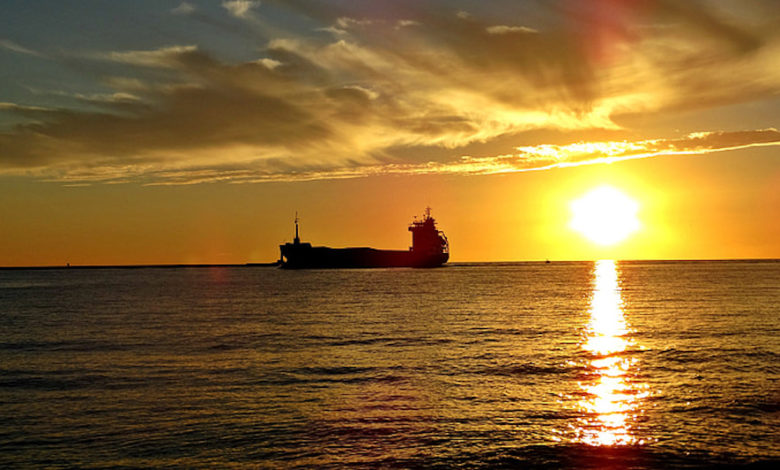Denmark versus Finland last Saturday needs to be a wake-up call for us all

Christian Ayerst from Mental Health Support Solutions watched on in horror as a Danish football player collapsed on the pitch on Saturday. Later on, he had time to reflect what lessons we in shipping can learn from the incident.
Like so many, I watched in horror as the drama unfolded. A nothing challenge. Officials frantically gesturing to the medical teams. Players and fans with head in hands. Life-changing decisions being made and played-out in real-time to those in the stadium and watching at home. Shocking. Distressing. But an inspiration for us all.
First, an enormous credit to everyone who was on scene. They made all the right decisions under enormous pressure. If the same thing were to happen to me, I would want every single one of them on my side.
Secondly, an example of why every single one of us owes our colleagues and teammates a duty to train ourselves both in the knowledge and the ability to perform under pressure.
Because without both – Saturday would have ended very differently. There is no excuse for any one of us not to have basic first-aid knowledge because “someone else will know” or “it won’t happen.” We’re all responsible for the health of others – whether we like it or not.
Thirdly – a prime example of why psychology must now be taken seriously in shipping – whether onboard or on shore.
The match restarted, the goalkeeper made an error, and a player missed a penalty. In reality – probably because their minds were elsewhere.
If ever someone needed convincing that performance is negatively impacted by traumatic events – your proof is right there.
Professional sports psychologists will debrief the players and officials to normalise their experiences, minimise the occurrence of PTSD and refocus their ability to perform at a high level. Fans will seek counselling or guidance (and if anyone has been affected by the issues, they are welcome to contact MHSS for free and confidential support).
And I’ll talk with an independent professional – because I’m brave enough to admit that what I saw affected me. And I’d rather talk with someone unconnected to my organization about how I’m feeling.
It’s a scandal that shipping still does not recognise that positive psychology is mission-critical to a healthy and safe working environment – to prevent incidents, during incidents and post-incident.
Because all the mechanical drills, voluminous training manuals and procedures are useless unless a person can think clearly, make accurate decisions and respond to fast-changing facts. Psychological training teaches this.
And organisations are seduced into thinking that “no staff complaints = no problem” – despite the obvious inference that nobody wants to upset their paymaster by complaining to them directly. Independent psychological support creates this buffer of confidence – in a confidential but change-focussed way.
And when an event does occur, organisations think that doing nothing for staff (because “they’re back with their friends and families”, or “we’ve thrown a team BBQ” – which I’ve also heard) or providing a caring-but-limited-voluntary-service is good-enough to tick the “we care” box.
It isn’t. PTSD can be triggered at any point by various catalysts and has serious consequences. Only professional psychologists have the training and nuance needed to recognize and treat it. Any organization ignoring this is knowingly putting staff safety at risk.
On Saturday a man’s life was saved by incredible decisions made by quick-thinking people and medical professionals.
So let’s use us this as a shining example of what shipping can become.
First, where we tell younger generations coming through “your team has your back” – because they’re trained to assimilate facts and make accurate decisions under extreme pressure. Which could save your life.
Secondly, where professional support is available as the incident unfolds, to give those affected the best chance of surviving and thriving.
And thirdly, where post-incident, shipping recognises and treats psychological trauma in a professional, independent way.
Saturday was the wake-up call shipping and psychological-sceptics badly needed.
And in the meantime – on behalf of the entire industry – let’s wish Christian Eriksen and the Danish team our best. Let’s be inspired by the way they behaved – and make our industry safer than professional sports.

Manning levels? Could we see the seafarers who are supposed to be security officers, safety officers, medical officers, accountants, environmentalists, administrative staff, etc. etc. etc. and then psychologists? I agree with the article. So much is needed to run these self-contained communities at sea and the burden is always being placed on seafarers with the elephant of manning levels still not being discussed at the IMO and anywhere else. Autonomous ships are not going to take over in their entirety anytime soon, we still have to care about the people. When it comes to seafarers, it’s all talk, but it seems to me unless as a global labour force seafarers decides to do something visible and tangible, the talk will continue. Those who care are the ones without the power, we can only add more talk by creating awareness. Action is a must.